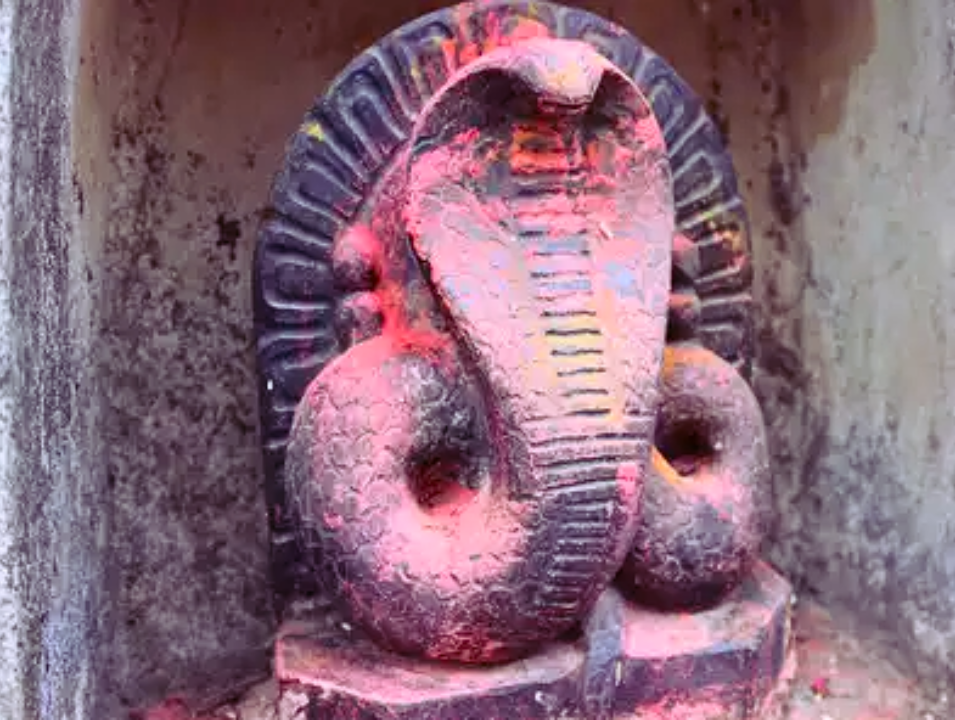Understanding Nag Panchami: An ancient Hindu festival
Celebrated annually on the Panchami Tithi of Shukla Paksha in the month of Shravan, Nag Panchami is one of the most revered Hindu festivals dedicated to the worship of serpents or nagas. The festival is deeply rooted in Indian culture, symbolizing reverence and respect for nature and its creatures. It is believed that worshipping snakes on this day brings protection from snake bites and other dangers.
Nag Panchami Significance: A Symbol of Prosperity and Protection
The significance of Nag Panchami is multifaceted. In Hinduism, snakes are considered powerful and divine creatures, often associated with various deities. The serpent god Sheshnag is depicted as the coiled bed on which Lord Vishnu rests, while Lord Shiva is often shown with a snake around his neck, symbolizing power and control over life and death. Nag Panchami is believed to bring prosperity, fertility, and protection from evil forces. Devotees believe that worshipping the serpents on this day pleases them and bestows their blessings throughout the year.
Muhurat for Nag Panchami 2024: Auspicious time to celebrate
In 2024, Nag Panchami will be celebrated on August 4. Muhurat or auspicious time to perform rituals is of great importance in Hindu culture. According to astrological calculations, the best time to perform Nag Panchami rituals is during Nag Puja Muhurta, which falls between 6:00 am and 8:00 am on this day. Performing rituals during this time is believed to increase the benefits and blessings received.
Historical roots of Nag Panchami: Dating back centuries
The origins of Nag Panchami are found in ancient scriptures and legends. One of the most popular legends associated with this festival is of Lord Krishna, who defeated Kaliya Naag and saved the people of Vrindavan from his wrath. This victory is celebrated as Nag Panchami, in honour of Krishna’s courage and pacifying of the serpent. The festival also finds mention in ancient texts such as the Mahabharata, where the worship of serpents is depicted as an important ritual among the Aryans.
Rituals and Traditions: How Nag Panchami is Celebrated
Nag Panchami is celebrated with various rituals that vary across different regions of India. However, some common practices include:
- Snake worship: Devotees visit temples dedicated to serpents or pray at ant mounds, which are believed to be the abode of snakes. Idols or images of serpents are offered milk, flowers and sweets to seek their blessings.
- Fasting: Many devotees observe a fast on Nag Panchami, refraining from consuming certain foods, especially foods that may harm snakes. The fast is broken after the rituals are completed.
- Making snake images: In some regions, women make images of snakes on the walls of their houses using a mixture of cow dung and turmeric. These images are worshipped as part of the rituals.
- Cultural performances: Folk dances, songs and plays depicting the legends of Nag Panchami are performed in various parts of India, adding a festive spirit to the occasion.
Regional variations in celebration: A diverse cultural fabric
Nag Panchami is celebrated with unique customs in different states of India:
- Maharashtra: The festival is marked by grand processions and snake shows, where live cobras are worshipped.
- West Bengal: Nag Panchami is associated with the worship of Goddess Manasa, who is believed to protect against snake bites.
- South India: Special pujas are performed in Karnataka and Tamil Nadu and clay idols of snakes are worshipped.
Conclusion: The Lasting Legacy of Nag Panchami
Nag Panchami is a vibrant and indispensable part of Hindu traditions, symbolizing the deep connection between man and nature. The rituals and significance of this festival highlight reverence for snakes, which are seen as protectors and symbols of prosperity. As we approach Nag Panchami 2024, understanding the cultural and spiritual significance of this festival allows us to appreciate its role in the rich fabric of Hindu traditions.
You might like this also :
Mumbai: Festivals That Bring the City to Celebrations 2024
